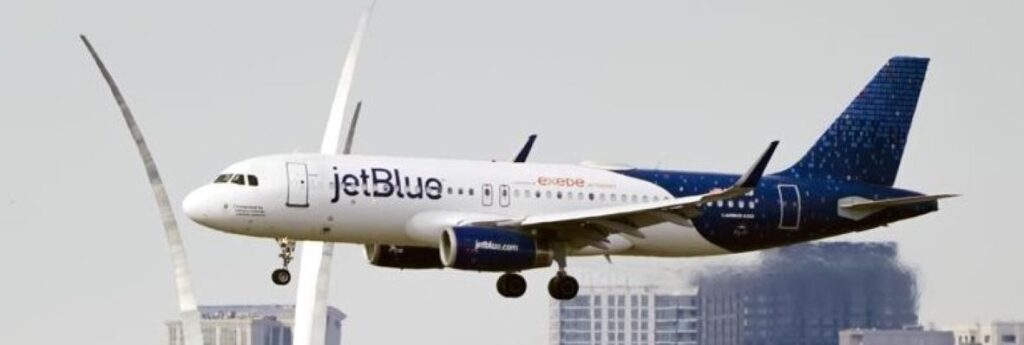Smaller airlines are looking to bulk up to take advantage of an expected recovery in air travel – and some believe that growing a fleet through a buyout may turn out to be easier in 2022 than purchasing new planes from Boeing and Airbus, which saw a resurgence in orders in 2021 and are working through backlogs.
Fleet size, for example, is a key motive for JetBlue’s recent bid to woo budget carrier Spirit Airlines and break up that company’s deal with rival Frontier. Both JetBlue and Frontier have small fleets relative to legacy carriers like American, United and Delta, which limits their ability to add flights and routes in an effort to compete for business.
Adding Spirit’s current fleet would boost JetBlue’s by 60% to more than 450 planes.
“The way I think about it, it is speeding up what we would have taken years to do,” said JetBlue CEO Robin Hayes, speaking with investors about the buyout offer.
Hayes said the deal would help give JetBlue the ability to be more relevant in markets where legacy airlines’ bigger fleets let them offer more flights and better schedules. It could help JetBlue expand to new cities and offer a wider variety of prices.
The deal faces several obstacles. Spirit Airlines would have to scrap its planned merger with Frontier Airlines. A deal with JetBlue could face regulatory scrutiny because the two overlap in some markets. The Justice Department has already sued to block JetBlue’s partnership with American Airlines in the northeast because of such an overlap.
Frontier and Spirit currently have mostly separate markets. Both are budget airlines, with Frontier operating primarily in the West, while Spirit has a stronger focus on the East Coast and Caribbean. They would have a combined fleet of about 280 planes.
All of this positioning comes amid a return to normal for travellers. Passenger numbers in North America could reach 94% of 2019 levels this year and a full recovery in 2023, according to the International Air Transport Association. That’s faster than many other regions globally.
Every major airline in the US started clawing back revenue in 2021, but the numbers are still well below pre-pandemic norms. With a few exceptions, such as Southwest, airlines lost money last year, and hope 2022 is the year they return to profit.
“There is still a long way to go to reach a normal state of affairs, but the forecast for the evolution in passenger numbers gives good reason to be optimistic,” said Willie Walsh, director general at IATA.

